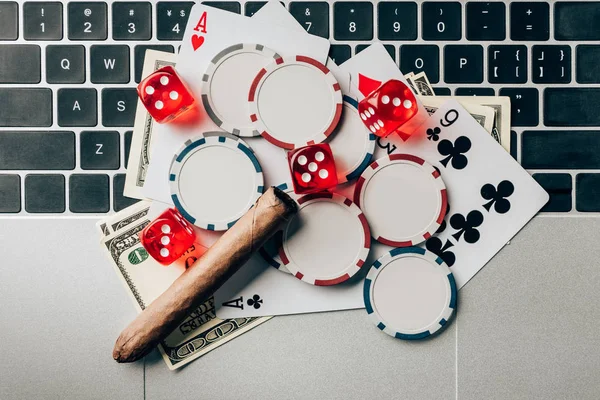Gambling can be a form of entertainment for many, but for some, it spirals into a serious addiction that affects not only the individual but also their loved ones. Understanding the signs of gambling addiction is crucial for early intervention and recovery. This article aims to provide an in-depth look at how to recognize gambling addiction, its impact, and practical steps to seek help.
Understanding the Signs of Gambling Addiction: An Overview
Recognizing gambling addiction involves being aware of behavioral patterns, emotional responses, and the negative impacts on life. Here are some key signs that may indicate a gambling problem:
Behavioral Signs
- Preoccupation with Gambling: Constantly thinking about gambling, planning bets, or recalling past gambling experiences.
- Inability to Stop: Repeated unsuccessful attempts to cut down or stop gambling.
- Chasing Losses: Feeling compelled to gamble more to recover lost money.
- Lying About Gambling: Deceiving family and friends about the extent or nature of gambling activities.
- Neglecting Responsibilities: Ignoring work, family, or social obligations due to gambling activities.
Emotional Signs
- Irritability and Restlessness: Getting upset or anxious when trying to cut back on gambling.
- Guilt and Shame: Feeling remorseful after gambling sessions, yet continuing the behavior.
- Desperation: Using gambling as a coping mechanism for stress, anxiety, or depression.
Financial Signs
- Financial Problems: Accumulating debt, borrowing money, or stealing to fund gambling habits.
- Loss of Control Over Finances: Inability to manage gambling expenditures, leading to severe financial strain.
Social Signs
- Isolation: Withdrawing from social activities and family in favor of gambling.
- Conflict in Relationships: Frequent arguments with loved ones regarding gambling habits.
The Impact of Gambling Addiction on Individuals and Society
Gambling addiction can lead to devastating effects not only on individuals but also on the greater community. The repercussions can manifest in various dimensions—including psychological, financial, and social aspects.
Individual Impact
- Mental Health Issues: Increased risk of anxiety, depression, and other mental health disorders.
- Financial Ruin: Loss of savings, home, and potential bankruptcy.
- Degradation of Relationships: Strain or complete breakdown in personal and professional relationships due to deception and financial issues.
Societal Impact
- Increased Crime Rates: Individuals may resort to crime to fund their gambling habits, leading to higher rates of theft, embezzlement, and fraud.
- Healthcare Costs: Increased need for mental health services, which can strain healthcare resources.
- Workplace Productivity: Loss of productivity due to absenteeism or decreased job performance linked to gambling issues.
Comparative Table: Gambling vs. Recreational Gambling
| Feature | Gambling Addiction | Recreational Gambling |
|---|---|---|
| Preoccupation | Constantly thinking about gambling | Enjoys gambling occasionally |
| Control | Loss of control over gambling habits | Can set limits on gambling sessions |
| Financial Impact | Significant financial distress | Minimal impact on finances |
| Emotional Response | Guilt, shame, anxiety | Enjoyable, stress-relieving |
| Social Interaction | Isolation from friends and family | Social activity with friends |
| Legal Issues | Higher likelihood of engaging in illegal activities | Rarely encounters legal issues |
Seeking Help: Practical Tips
Recognizing gambling addiction is the first step toward recovery. Here are practical tips for individuals who suspect they or someone they know may be struggling with gambling addiction:
Self-Assessment
- Reflect on Behavior: Keep a journal detailing gambling activities, feelings associated with gambling, and any negative consequences incurred.
- Use Online Quizzes: Many organizations offer self-assessment tools that can provide insight into gambling habits.
Open Communication
- Talk to Loved Ones: Discuss concerns with family and friends who can provide support and encouragement.
- Seek Professional Guidance: Consult a licensed mental health professional or addiction specialist who can provide an assessment and tailored treatment plan.
Establish Boundaries
- Set Financial Limits: Create a strict budget for entertainment that includes gambling and stick to it.
- Avoid Temptation: Stay away from places where gambling occurs, including casinos and online platforms.
Support Groups
- Join Support Groups: Organizations like Gamblers Anonymous provide a safe environment to share experiences and support recovery.
Conclusion
Recognizing gambling addiction involves being aware of various signs and understanding its profound impact on individuals and society. If you or someone you know is struggling with gambling, it’s important to seek help. By doing so, you can reclaim control over your life, improve mental well-being, and restore relationships. Early intervention and professional support are critical steps in the journey towards recovery.
